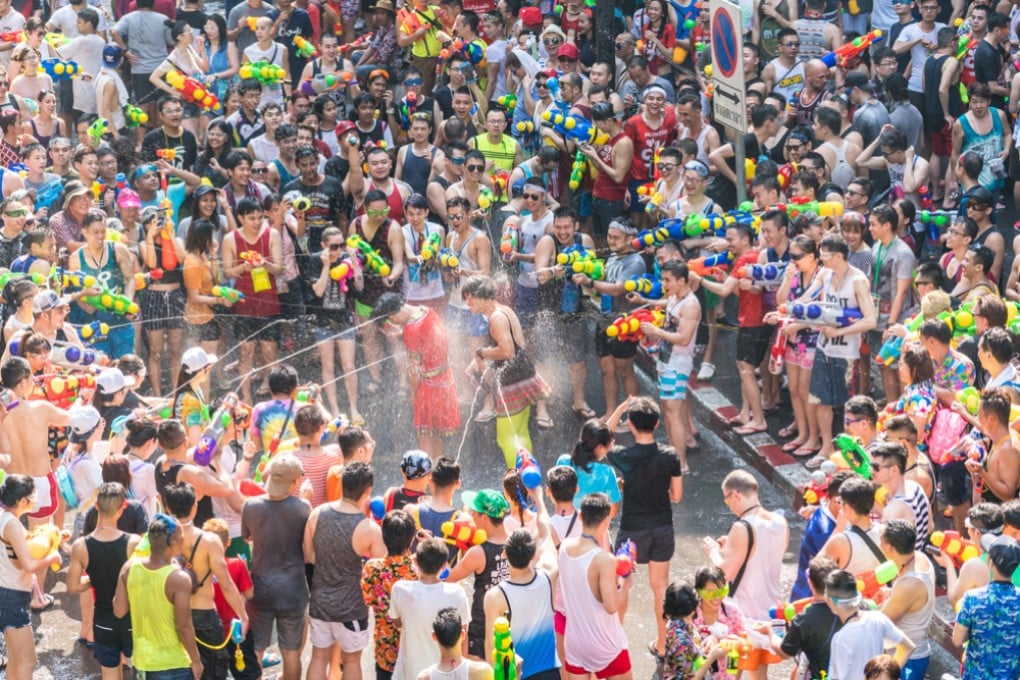Explainer | Songkran, Thailand’s water festival: its Buddhist rituals, family traditions, mass water fights and dark side, from sexual harassment to drink driving
- Songkran marks Thai New Year, and the old practice of pouring water to wash away sins and bad luck has evolved into colourful and exhilarating mass water fights
- But splashing dirty water causes illness, sexual harassment is rife – with women complaining of being groped – and excessive boozing causes road deaths to spike

Songkran comes from the Sanskrit word sankranti, which roughly translates as “astrological transition”. The Buddhist festival, which is celebrated from April 13 to 15, marks the Thai New Year.
It’s a time for personal cleansing, making merit and keeping cool amid searing heat. It’s also an opportunity for families to get together and enjoy specially prepared meals.
In readiness for the holiday, Thais deep-clean their homes and public places, including offices and schools. Parks and pavements are also spruced up. People wake up early and visit temples to pray and present monks with offerings of food, robes and donations.
At home, young family members pour rose and jasmine water over the hands and feet of elders as an act of gratitude and devotion.

